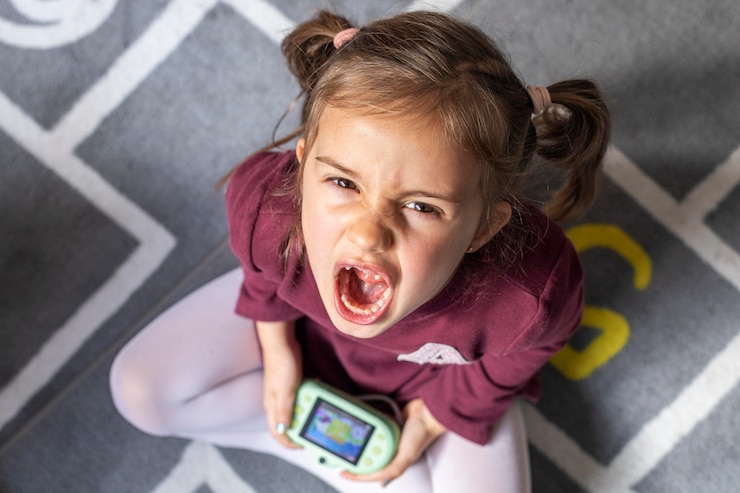
Inside, you’ll find evidence-based tips and strategies for managing anger in children, shared by a child and family therapist.
**Table of Contents:**
– Imagine your 4-year-old coming downstairs at 6:30 am asking for candy, then breaking down in tears when the answer is no.
– Picture your 7-year-old feeling left out and calling her siblings “stupid” in anger.
– Consider your 9-year-old returning from school with crossed arms and a grumpy face, refusing to talk about her day.
If you’re unsure about how to support your child through their anger, don’t worry. This all-inclusive guide on anger management for kids has you covered—and remember, you’re not alone!
Before you can help your child manage their anger effectively, it’s important to understand where their anger originates and what triggers it. Discover the purpose anger serves for children and the common causes of anger issues in “Parenting an Angry Child? 10 Underlying Reasons You Shouldn’t Ignore.”
Teaching your child to handle anger healthily involves more than just a few techniques or phrases. A solid foundation is crucial for your child to manage anger and strong emotions effectively.
Find out how to build this lifelong foundation in “How to Help a Child Deal with Anger Now and Throughout Life.”
With a basic framework in place, it’s time to delve deeper into one of the most effective anger management topics for kids—this approach, although challenging, is the quickest way to help them calm down.
Learn about this intervention in “The Best Thing You Can Do to Help an Angry Child.”
Here are 75 effective strategies to help kids calm down.
Once you’ve set this groundwork, you can guide kids in exploring anger more practically. Here are the seven anger management activities I frequently use with children.
Explore “The 7 Best Anger Management Activities for Kids.”
Check out the ultimate list of the “50 Most Effective Anger Management Tools for Kids.”
Teaching children to regulate their emotions positively and purposefully is known as self-regulation. It’s a lifelong skill essential for social, emotional, academic success, and well-being.
Discover steps to improve your child’s emotional regulation skills in “6 Guaranteed Ways to Boost Your Child’s Emotional Regulation Skills.”
Here’s a truth you might not want to hear: many parents make a common mistake while trying to help their child calm down. I often witness it at the store (and even catch myself doing it sometimes!).
Help your child more effectively by avoiding this common error in “Stop Doing This One Thing to Help Your Child Calm Down.”
Coming soon: Recommended Anger Management Books for Kids.
Guiding a child to better control their anger requires support and direction from caregivers. Let’s be honest, many adults are still learning to handle their emotions healthily!
By fostering emotional intelligence and teaching skills to manage anger, you’ll set your child on the path to a healthy relationship with their emotions.
Empower your child with lifelong skills.
Join 30,000 other intentional parents who receive the Parents with Confidence weekly email. Sign up to get a 5-day free email parenting course where you’ll learn:
– How to best protect your child’s self-esteem
– The real way to gain your child’s cooperation
– The most valuable skill a child can have for the future
– How to discipline your child without causing emotional harm
**Join + Send My eCourse!**
We promise not to spam you. Unsubscribe anytime.



